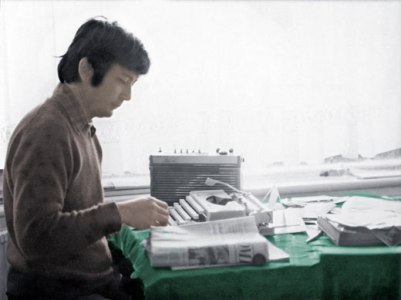True to form, the US military has come up with yet another set of buzzwords to define the current policy confusion that confronts the situation facing American forces assigned to trouble spots around the world.
In the 1950s, it was SNAFU (Situation Normal: All F—-d Up). Now, in the wake of the political, economic and cultural crises in Iraq, Afghanistan, Pakistan, the Middle East, East Asia and a host of flare-ups in other regions of the world, US forces — the army, navy, air force and marines — face the thankless task of operating in some of the world’s most intractable trouble spots comprising wars, insurgencies and tribal conflicts, many of which were born out of local
rivalries but are often blamed (fairly or unfairly) on American involvement, or on American fears that such tribal or local wars may end up challenging America’s national security interests.
One of the outcomes of the investigation into the personal backgrounds of the 9/11 hijackers led to a broader question among Americans: “Why do they hate us?” This was a variation on the Cold War question of why were the Soviets so anti-American at the height of US-Soviet rivalry throughout the world.
American diplomats, aid agencies and military attachés who work in embassies continue to carry the burden of this cultural overhang. Those who specifically engage in “stability operations” in Afghanistan, Pakistan and Iraq following the US-led invasion of Iraq in March 2003 find themselves trying to figure out ways to confront today’s world of Volatility, uncertainty, complexity, and ambiguity (VUCA) at every level — in staff, field and theater operations.
How does one define a reliable war lord; an exile who commands sufficient leadership authority to follow through on an election cycle that guarantees a modicum of longevity to satisfy the desk jockey in charge of funding America’s programs, subject to periodic Congressional approval? Who guarantees the guarantor?
What level of support is given to covert operations that effectively make renditions in Asia or Latin America serve the US’ immediate policy goals across state, Pentagon and National Security Agency (NSA) levels?
How effective are experts in Islamic studies in gauging the proper pitch to ascertain American success? In the mid-1990s, the renowned scholar, Bernard Lewis, was invited by then US ambassador to Indonesia, Paul Wolfowitz, to dinner to meet Nurcholish Madjid. The consensus reached at the time was that Indonesia was a modern society destined to be a role model for other Muslim-majority countries, including in the Middle East.
Such was the belief in Pentagon circles that in March 2003, Wolfowitz was convinced, based on his experience as the ambassador in Indonesia, that the US invasion in Iraq would be welcomed by Iraqis who would be only too glad to oust Saddam Hussein.
No one in the Pentagon or in Jakarta, least of all in Iraq, realized that the VUCA world had arrived. In Iraq, stability operations fell apart, as political, cultural and especially sectarian differences rose their ugly heads and upended all notions of policy effectiveness.
The world has changed greatly from the Jack Ryan dramas depicted in Tom Clancy’s novels and the movies based on them.

Even the world post Osama bin Laden’s death in May 2011 (Zero Dark 30) is having to be constantly revised and updated.
